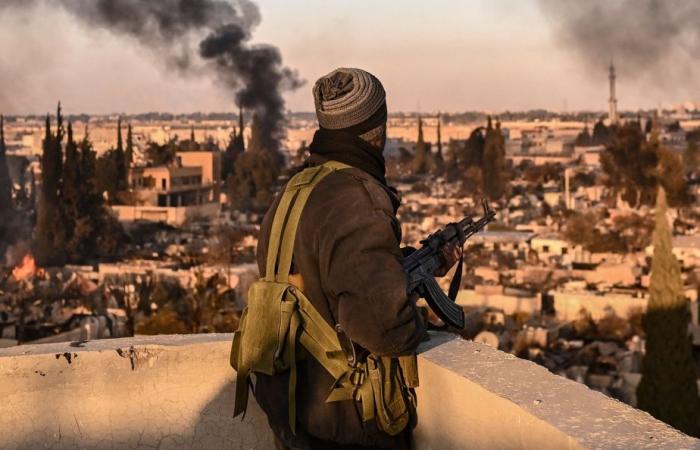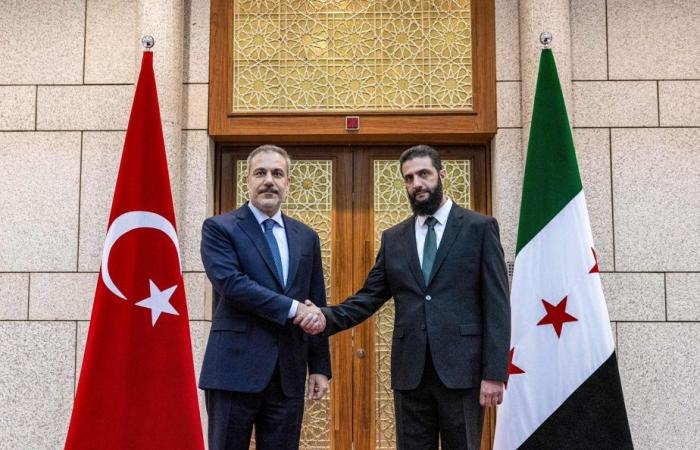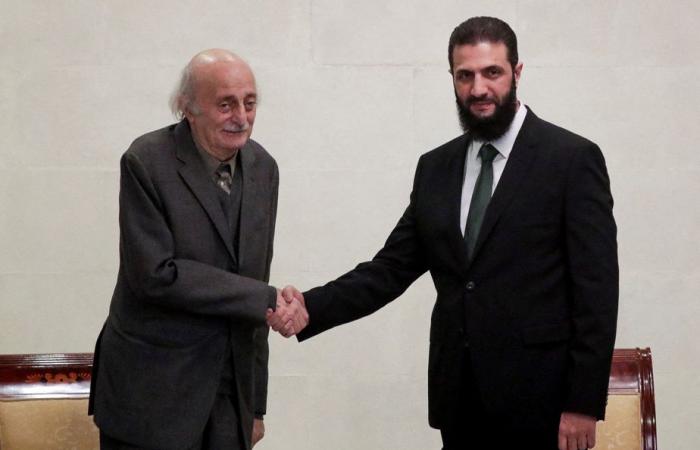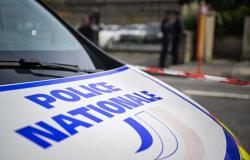(Damascus) Two weeks after taking power following a vast surprise offensive, Syria's new strongman, Ahmad al-Shareh, announced on Sunday that all of the country's weapons would come under state control .
Posted at 12:33 p.m.
Updated at 2:00 p.m.
Maher AL MOUNES and Lisa GOLDEN in Beirut
Agence France-Presse
He spoke in Damascus alongside the head of Turkish diplomacy, Hakan Fidan, after receiving a delegation from Lebanon with whom he pledged to put an end to “negative” Syrian influence in his neighbor.
On December 8, a coalition of rebels led by the radical Islamist group Hayat Tahrir al-Sham (HTS) led by Mr. Chareh, and supported by Ankara entered Damascus and announced the overthrow of power, after a dazzling offensive which made it possible to seize a large part of the country in 11 days.
Abandoned by his Iranian and Russian allies, Bashar al-Assad, who ruled Syria with an iron fist for 24 years, fled to Moscow, marking the end of more than 50 years of unchallenged rule by the Assad clan.
In this context of transition in the bloodless country battered by 13 years of a devastating war, Mr. Chareh declared that the “armed factions [allaient] begin to announce their dissolution and to enter into the army.
PHOTO PROVIDED BY THE MINISTRY OF FOREIGN AFFAIRS OF TURKEY, AGENCE FRANCE-PRESSE
Hakan Fidan, head of Turkish diplomacy, and Ahmad al-Chareh, leader of the radical Islamist group Hayat Tahrir al-Sham
“We will absolutely not allow weapons to escape state control […]whether they come from revolutionary factions or factions present in the FDS zone [Forces démocratiques syriennes, dominées par les Kurdes] “, he added.
The SDF is seen by Ankara as an extension of its archenemy, the US-backed Kurdistan Workers' Party (PKK).
Mr. Chareh also reaffirmed that his administration was working to protect minorities against “external” actors who try to exploit the situation “to provoke sectarian discord”, and stressed the importance of “coexistence” in the multi-ethnic country. and multi-faith.
“Syria is a country for everyone and we can coexist. »
“Erase the memory of ancient Syria”
After the fall of Bashar al-Assad, who posed as the protector of minorities in a Sunni majority country, the new authorities are being scrutinized for the way they will treat minorities.
Mr. Chareh also received the Lebanese Druze leader Walid Jumblatt in Damascus, for a first meeting with a leader of this neighboring country, who suffered for decades from the interference of the Assad clan, to whom numerous acts of violence are attributed, including multiple assassinations.
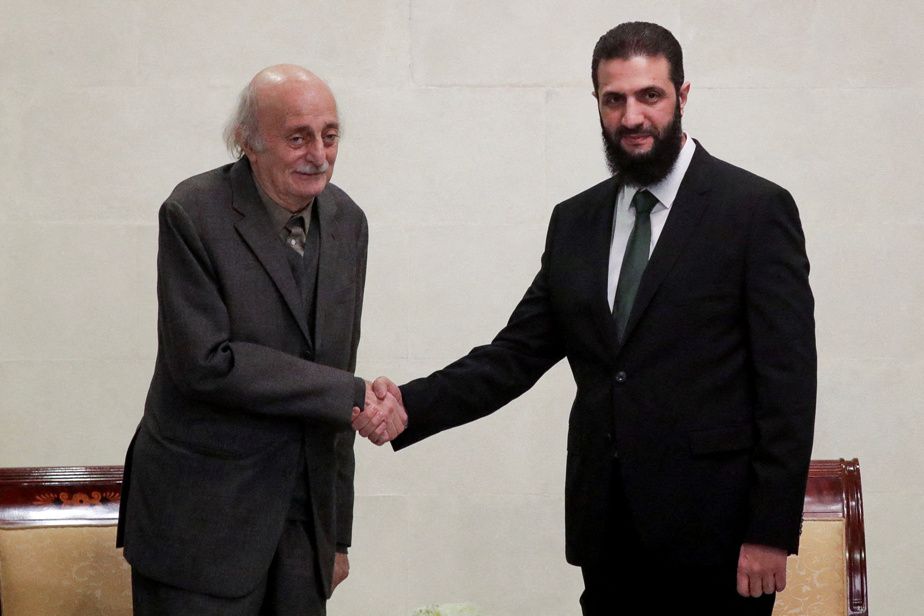
PHOTO KHALIL ASHAWI, REUTERS
Walid Jumblatt, Lebanese Druze leader, and Ahmad al-Chareh, leader of the radical Islamist group Hayat Tahrir al-Sham
Syria will no longer have “negative interference in Lebanon and will respect Lebanon’s sovereignty, its territorial integrity […] and its stability,” assured Ahmad al-Chareh, who called on the Lebanese to “erase from their memory the memory of ancient Syria in Lebanon.”
Mr. Jumblatt was at the head of a large delegation of deputies from his parliamentary bloc, including his son Taymour, who succeeded him as head of the Progressive Socialist Party, and religious dignitaries from the Druze minority, an esoteric sect from Islam distributed between Lebanon, Syria and Israel.
He spoke at the presidential palace with Mr. Chareh, who appeared for the first time in a suit and tie, and who was known until now by his nom de guerre Abu Mohammad al-Jolani.
Mr. Jumblatt accuses the deposed Syrian power of having assassinated his father, Kamal Jumblatt, in 1977, during the Lebanese civil war (1975-1990).
The assassinations of many other Lebanese anti-Syrian officials are attributed to Bashar al-Assad and his predecessor, his father Hafez.
The Druze leader, who congratulated the Syrian people for having “ridden themselves of tyranny and oppression,” called for “all those who committed crimes against the Lebanese” to be judged.
Call for sanctions to be lifted
Mr. Chareh also denounced the role that Iran played in Syria, saying that the presence of “Iranian militias constituted a source of concern for all regional and international countries.”
Russia and Iran, with their allied militias and notably the powerful Hezbollah, were the main supporters of Bashar al-Assad's power during the civil war which began in 2011 and left some 500,000 dead and millions displaced. .
Iran “does not have” proxies in the Middle East and “does not need” them, Iranian Supreme Leader Ayatollah Ali Khamenei said on Sunday.
“The international community must be fully mobilized so that Syria gets back on its feet and displaced people return to their country,” Hakan Fidan also urged, calling for sanctions against Syria to be lifted “as soon as possible “.
Since Assad's overthrow, diplomats from different countries, including the United States and France, have since traveled to Damascus to meet with the new authorities.
A senior Syrian diplomat told AFP in Riyadh that the Saudi government had also established direct contact with the new Syrian authorities and would send a delegation to Damascus.
Washington abandoned the reward offer for the arrest of the new Syrian leader on Friday, but HTS is still classified as “terrorist” by several Western countries.
UN investigators request permission to investigate on the ground
The head of UN investigators on Syria, who are working to gather evidence on atrocities committed in the country, said in Damascus on Sunday that he had requested authorization from the new power to begin field work.
After investigations carried out so far remotely, “hundreds of detention centers have been documented […]. Each security center, each military base, each prison had its own place of detention or mass grave,” said Robert Petit, who heads the International, Impartial and Independent Mechanism (IMI), created in December 2016 by the General Assembly of the UN.
“It will take a long time before we know the full extent of it,” he added to AFP.
The MIII, based in Geneva, is responsible for assisting in the investigation and prosecution of those responsible for the most serious crimes under international law committed in Syria since the start of the war in 2011.
These UN investigators had never been authorized by Damascus to go to Syria.
Agence France-Presse

